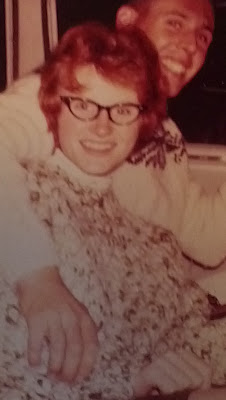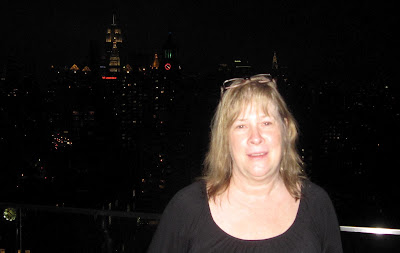Summer is gone. There is a light dusting of snow on the tundra and the fall light is with us, full of soft pastels and evening fire. The whales are passing by us, headed south.
So I am behind on posting of summer, mostly because I was un-wired for a good part of the time. Here are my summer memories to share....
It began on the coast of the Arctic Ocean, traveling eastward from the northernmost point of land on the North American continent, to the Chip River and then southward--inland--to the Ikpikpuk River, the place of big cliffs in the foothills of the Brooks Range.
The one thing that stands out about this trip (aside from the fact that I intentionally left my laptop behind and went an unprecedented eight days without it) was the light. We traveled all night, some nights, but it wasn't dark. The sky around us, bigger than life, was translucent. Luminous. There is nothing in the world quite like the 24-hour light of an Arctic summer night deep in the country. Absolutely nothing. That kind of light has it's own flavor as though the air itself is made different by its presence.
We flew up the river in our new river boat, the sides of the cliffs sprouting with red and purple flowers and the waters were alive with geese and goslings. As they saw the boat approach, the niglik--the adult geese--would run flapping along the top of the water in front of us, fleeing--or perhaps trying to divert us--and the goslings, the nigilingnaurat, would dive in unison, butts up, as though they had been drilled in the procedure.
And the caribou. They were there by the hundreds along the shores of the Arctic ocean, escaping the mosquitoes and crossing the river, up inland, migrating.
It was a breath-taking journey.
The great thing about a river boat is that it can fly through shallow water where other boats get stuck. The bad thing is that when it gets stuck, it really gets stuck.
When we got stuck, it took seven hours, all night, for the four of us--my husband, myself, our son and our daughter's fiance, to push us out. And trust me, my husband and I are fairly past the prime of our brawniness. In fact my husband has had serious health issues and yet was up on the bow of the boat, dancing, even after five hours of being stuck. (Don't tell him I told you that.)
He was so happy to be back inland, the place that feeds his soul.
It was 7 am. by the time we broke free. We should have stopped for the night but we didn't. A milky fog drifted along the water making the world seem magical. It hard to see, but we kept going...and we got stuck again. As tired as we were, it looked hopeless.
"When are we going to go for help?" my son asked. At that exact moment it really did look like without help we would be there forever.
My husband, who still had his humor about him, laughed and told him to quit being silly. In this country, you help yourself or you perish. We did not perish. We made it all the way to our cabin, where a bear had preceded us. One of the hunters we ran into said something about those grizzlies that tickled me: "you know, you can look into one of their dens and it's so neat it looks like they have maid service, but when they get inside your cabin they leave it totally trashed." Our cabin was totally trashed. The pots were all punctured by huge teeth and the floor was covered with rotting caribou fur as though a bear had dragged an animal, or several, into the cabin and eaten everything but the fur. The mattress appeared to have been slept in by something big and wet and smelly and bear-shaped. We still have a lot of work to do there.
It was the longest I've been separated from my computer in something like 18 years. I also lost my cellphone along the way. It was a silly thing to bring in the first place. We were way beyond the world of cell service but it helped me keep track of the time and date, when I felt the need to know, which in that timeless world, I rapidly quit needing to know...
How fast our lives fly by. I remember well, the autumn day nearly fifty years ago when they got married and waved goodbye, smiling, from their little car. They spent their honeymoon in northern Minnesota duck hunting. Now they are both gone.
They never had children and so left me their cabin on an island in the lake, the lake just south of the Canadian border, the lake where they spent their honeymoon, a lake I know well.
I spent every summer of my childhood there.
It is a place of enduring beauty, a place that somehow doesn't seem to have changed all that much since those lazy summer days of my childhood, when Mom and I stayed there alone, painting and reading and dreaming.
It's a place where one steps out the door to a world of water, Norway pines and northern skies...
A small island where one falls asleep to the sound water lapping against rocks and wakes to birch trees shaking their leaves outside the bedroom window.
It's the world I grew up in. It has electricity now, but only very limited cell service. I got a lot of writing done there, a lot of big picture thinking about my current work in process, a work which was in a huge knot when I arrived--a wonderful, totally hopeless mess of scenes and odd events and things which I, as the writer, was surprised about, delighted with, but which ultimately left me feeling helpless.
What did it all mean? Where was it going? Who knew? Not me.
Okay, so I still don't know entirely, but I am a whole lot closer now.
My brother had a wood burning hot tub on the side of the island facing the sunrise. I stoked it with wood at night and took hot tubs when the sky was red with sunrise and not a soul was around to see this 60 year old woman, floating in the cold northern waters, looking up at the pines and listening to loons.
My sister had a kitchen, stocked just the way I would stock it, right down to the spices. I felt her presence there, sometimes, looking for something I knew she would have...
come on Barb, were is the cumin? And it would appear. Right there on the shelf in front of me.
The cabin has it's stone fireplace. It's sixty years old, that fireplace, built by one of Dave's mentors, Carter Wetzel, an old man who lived all alone in the woods and knew its ways like he knew his own mind. We called him a hermit. Dave spent time with him, learning what he knew. He knew hunting and fishing and trapping. He knew where to find diamond willow and how to make furniture from it, how to notch logs and build cabins and stone fireplaces and even--he showed us once--how to make cane strips, the kind you use for chair seats. I was very small, but I remember vividly, the huge white pine, stripped of its bark, and the way he covered it with mud and pounded it down, very systematically, with a mallet, until the strips peeled off, one by one.
Do you see, in the picture below, the white stone in the bottom center? Its quartz.
That's my brother's flag above the mantel, honoring his four years in the Air Force. I couldn't bring my self to rearrange the furniture. I couldn't bring myself to remove the utensil container that says it's "Barb's Kitchen." I couldn't bring myself to remove my brother's camouflage hunting jacket from the coat rack. Maybe I never will.
I am just grateful to be able to reclaim this piece of my life, grateful that I was able to be there this year, just as the trees were changing. I love fall. It's my favorite season. It's been so long since I've seen fall in Minnesota. Swimming in the chill northern waters one dawn, I heard the sound overhead of geese returning north. It's been over 40 years since I last heard the sound of geese in the skies of northern Minnesota.
I remember, I told George, how the skies would fill with the geese, their calls deep and pervasive, how the sound would always make my heart flutter. No, they no longer do that, George told me. He, too, remembered the geese in the skies of northern Alaska, so numerous they darkened the sun with their numbers. Those numbers of geese are gone, George said, gone in Minnesota as well is in Alaska, gone as much of their habitat is gone to malls and suburbs and parking lots.
How sad to think that that sound now only exists as an echo in our aging memories.
And now, I am returned to the tundra, my front yard russet with fall, the light falling in the chill air, wonderful and life affirming.
Arigaa.

























